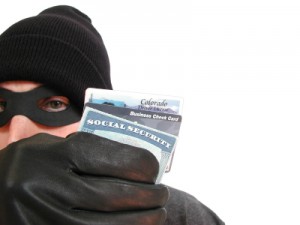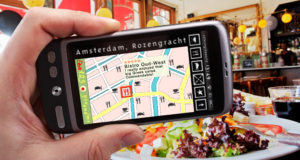|
Listen To The Article
|
 Financial calamity can be brought on by many things. Natural disaster, runaway inflation, unexpected illness, and stock market collapse are just a few of the ways you could suddenly find yourself in trouble and seriously short of funds. Unfortunately, there is little you can do to protect yourself from most of these situations, perhaps outside of packing up and moving out of the country. There is one kind of financial calamity, however, that you can protect yourself against if you take the proper precautions and that is identity theft.
Financial calamity can be brought on by many things. Natural disaster, runaway inflation, unexpected illness, and stock market collapse are just a few of the ways you could suddenly find yourself in trouble and seriously short of funds. Unfortunately, there is little you can do to protect yourself from most of these situations, perhaps outside of packing up and moving out of the country. There is one kind of financial calamity, however, that you can protect yourself against if you take the proper precautions and that is identity theft.
There is an old proverb that says it is not paranoia if they really are out to get you. This saying perfectly captures the threat we all face from identity thieves, as these predators are on the prowl like never before. There are thousands of these skunks operating out there who want to steal your identity so they can steal your money, or leave you with huge bills to pay for things you did not purchase. The Internet in particular has opened up a wealth of new possibilities for these stealthy criminals; never before has it been easier to be too lazy to work and yet still be able to get rich off the labors of others.
Identity thieves are after your name, your personal information, and your credit, and they have a plethora of effective methods for gaining access to these potential goldmines. But you do not have to be a helpless victim – there are a number of proactive steps you can take to protect yourself from this type of ruthless predator.
Protecting Yourself Online
There is no question that buying things online is convenient, and it can also save you a lot of money. However, purchasing things online frequently does require you to reveal personal information such as name, address, phone number, credit card information, and bank account numbers. If you are going to make purchases of online bargains, you should only reveal your personal information on websites that are protected by security measures. Always look for sites that have the locked icon in their browser bar, along with a web address that begins with “https” instead of the normal “http.”
No matter how careful you are about revealing personal information, if you ever do so, or choose to store any important information on your computer, you are vulnerable to the attacks of hackers. These evil geniuses are amazingly clever about finding ways to penetrate flimsy defenses, which is why it is important to have a strong firewall installed on your computer to keep out any potential intruders. You also need to have up-to-date virus protection functioning at all times, to prevent your system from being compromised in potentially catastrophic ways. And, make sure that any passwords you use are complicated and not easily guessable by any other person. Click on the link for a comprehensive list of things you can do to keep your computer safe, an article that recently ran on Off the Grid News.
Protecting Your Mail
If you have a mailbox outside your home or in the entranceway to your apartment building, here is one excellent piece of advice for protecting yourself from identity theft – don’t use it! Go down to the nearest postal facility instead and rent a box from them. This will cost you a monthly or yearly fee, but it is worth it, because this is the one place you can be sure no one will be able to break into your box. Theoretically it could still happen there, but it won’t, because identity thieves will never take the chance when there are so many unprotected and unmonitored boxes out there just ripe for the picking. If identity thieves do manage to intercept your mail, they could use the information they find to do all kinds of terrible and expensive things in your name.
Protecting Yourself at Home
Do you shred your bank and credit card statements, pre-approved credit offers, or financial documents before you throw them away? If you don’t, then start doing so, immediately! Identity thieves are not the least bit fastidious when it comes to sifting through garbage to find something potentially useful, so you need to make sure you don’t put anything in your trash that could compromise your personal security in any way. Also, make sure that all of your important papers, records, and other items containing personal information are kept safe at home in a lock box, since identity thieves are certainly not above breaking and entering.
If people contact you on the phone requesting personal information, do not give it to them unless you contacted them first and are sure that you know exactly who they are. The number of phone scam artists operating out there is truly mind boggling and they have an almost unlimited number of routines they might try to use to get you to give them information they can exploit for ill-gotten gain. When anyone starts asking you for personal information over the phone, be extremely rude, and hang up immediately.
Protecting Yourself in the Streets
When you leave home, take only what you plan to use during that trip, such as credit cards, debit cards, checkbook, drivers license, and cash money. If you have to go to an ATM to withdraw money, only go during daylight hours, and never use ATMs located in relatively deserted areas. Of course, while you want there to be people around, never make transactions when anyone is close enough to see what you are doing – demand your personal space be respected. If you are carrying a checkbook out and about, make sure that you do not have your social security number or driver’s license number printed on your checks. And definitely memorize your social security number – never carry the card with you in public.
What to Do if You are a Victim
Check bank statements and credit card reports carefully, and if you see irregularities report it to the relevant bank or financial company immediately. If your wallet is stolen with credit cards or checkbook in it, do the same so that blocks can be put in place, and also file a police report. The U.S. Postal Inspection Service should be contacted if you suspect you have been the victim of mail fraud. Also, check out your credit scores frequently to make sure nothing untoward has been occurring. It’s well worth paying the fee to do so, to ensure nobody has purchased a house, car, or anything else, or in some other way falsified documents using your credit/identity.
As long as you act quickly, your liability for charges run up by identity thieves under your name will be extremely limited. The main thing here is to be proactive, and tell the relevant authorities and institutions as soon as you realize you have been victimized.
The Best Solution – Don’t be a Victim!
There is another old saying about a fool and his money soon being easily parted. The good news is you don’t have to be a fool – if you watch out for yourself and your family closely, you can protect yourself against the assaults of nefarious identity thieves. It is not paranoia – they really are out to get you, and you need to be prepared for that reality.
 Off The Grid News Better Ideas For Off The Grid Living
Off The Grid News Better Ideas For Off The Grid Living



